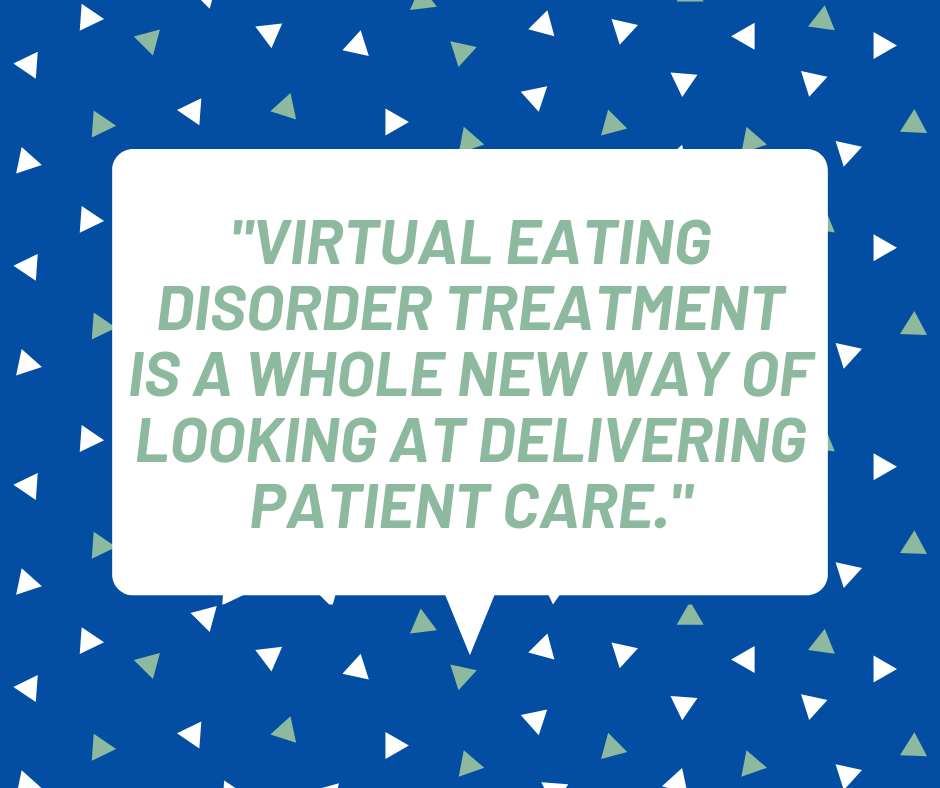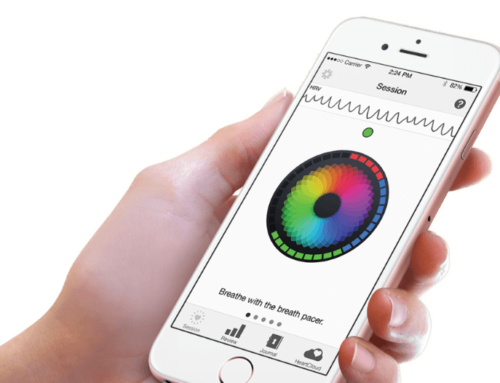Keeping up with our Chief Clinical Officer Paula Vass means starting calls at the wee hours each day. We were lucky enough to connect with her on day two of week two of our transition of all ambulatory care to virtual eating disorder programs as a result of the COVID-19 situation.
As one of the first organizations in the country to fully embrace and operationalize virtual eating disorder treatment, we thought it would be interesting to hear a little more from how Paula and her team leaped quickly and successfully into the virtual treatment space.
Your team created and started a virtual eating disorder treatment program that is now serving close to 200 families and patients a day. What do you think about that?
I think it is incredible. It’s a whole new way of looking at delivering patient care. We were nervous and frankly, a bit scared. We had been thinking about virtual treatment programs for a long time, but we hadn’t made the leap. There’s nothing like a pandemic to force us to think and act fast to respond to the clinical needs of clients and families and continue to provide treatment.
What has been the most interesting part of the transition to virtual programming?
I was surprised at how powerful technology can be in a therapeutic setting. We have had some great surprises that we are building into our programs in even more supportive ways.
- Home dynamics in real-time. As clinicians, we know people behave differently in their own homes, but we don’t often see that part of their lives. Clients and their families have responded so positively with us being in their homes with them virtually. The virtual program model allows us a better understanding of sibling relationships, family dynamics, and individual life patterns that we’ve never had before. Noticing nuances from someone’s home life is helpful when we have our family meetings and 1:1 treatment because we can dive deeper into the therapy and discuss behaviors we see in real-time.
- Family therapy. In the past, families would come to our facility for the sessions. Now we have family therapy sessions virtually, in the home, and we have noticed a need to end these sessions differently. Emotions can run high during these meetings, and before there was a car ride, a time to unwind, and find a bit of distance to think things through. Now the session ends with the family all together in their homes, making it harder for them to find that emotional distancing immediately after. So now for some families, we ask the parents to check in with us twenty minutes after to make sure things have settled down and what we are hearing is that they feel comforted by this extra security and support continue to assess and modify our approach to find what works with each client and their family to best manage their treatment.
- Patients remain highly focused on their treatment. We weren’t sure how clients would be during this time of a national crisis. What has been so reassuring to us is the determination and focus of our clients and that they are not giving up on treatment. Over 90% of our clients have made the shift to virtual programming with more and more people joining each day.
Is virtual programming going to go away when the pandemic is over?
Absolutely not. We now have a whole new way to work with patients. It will work long term for some, while others will still do better in a clinic setting. We have students and individuals taking care of an ailing relative and have been unable to participate in treatment before, but now, because of our virtual programming, they are able to get the help they need and deserve. In the future, I see an amazing blend of both virtual and in-person treatment working hand in hand. We are always seeking new ways to help people, and now we have opened a new door and a new future!
What’s next?
We are continuing to evolve our virtual programming based on feedback daily. There are so many exciting new elements we are going to be testing over the next few weeks. We will report as they come to life.







